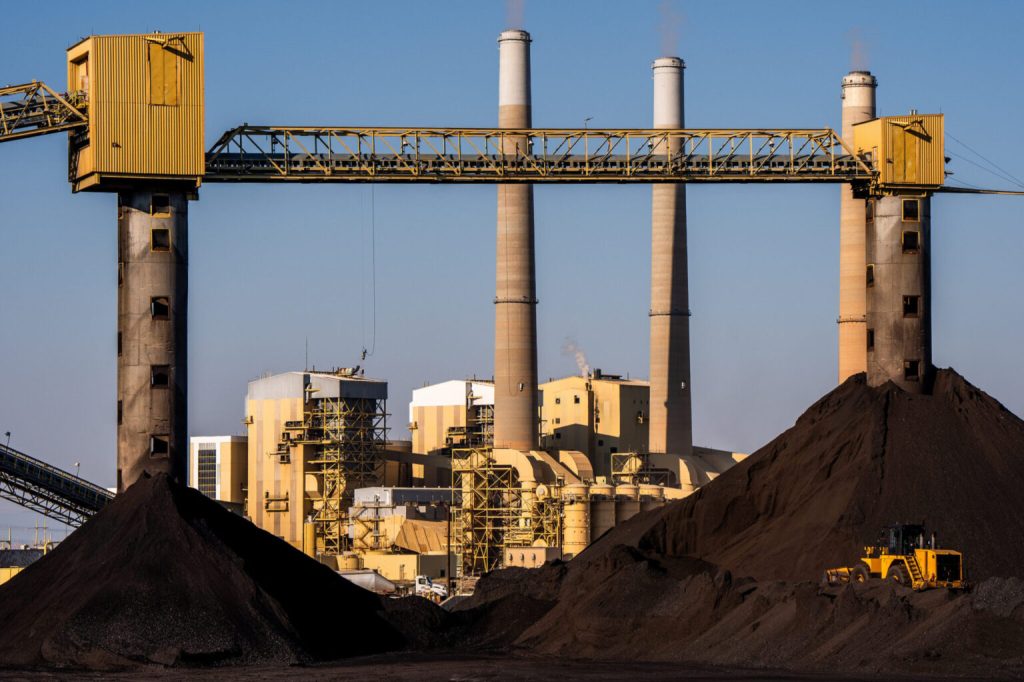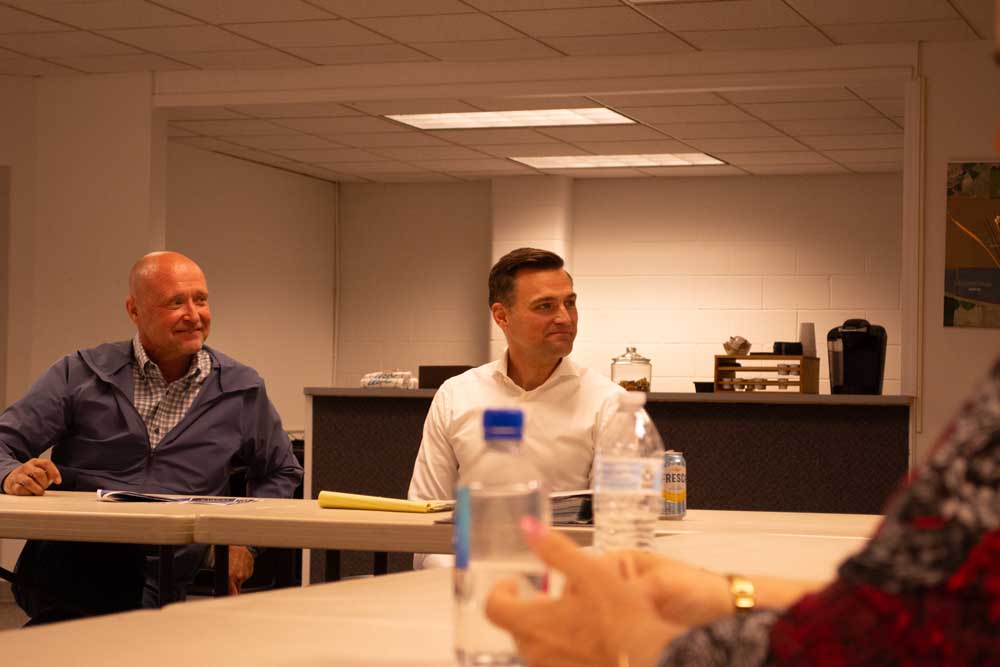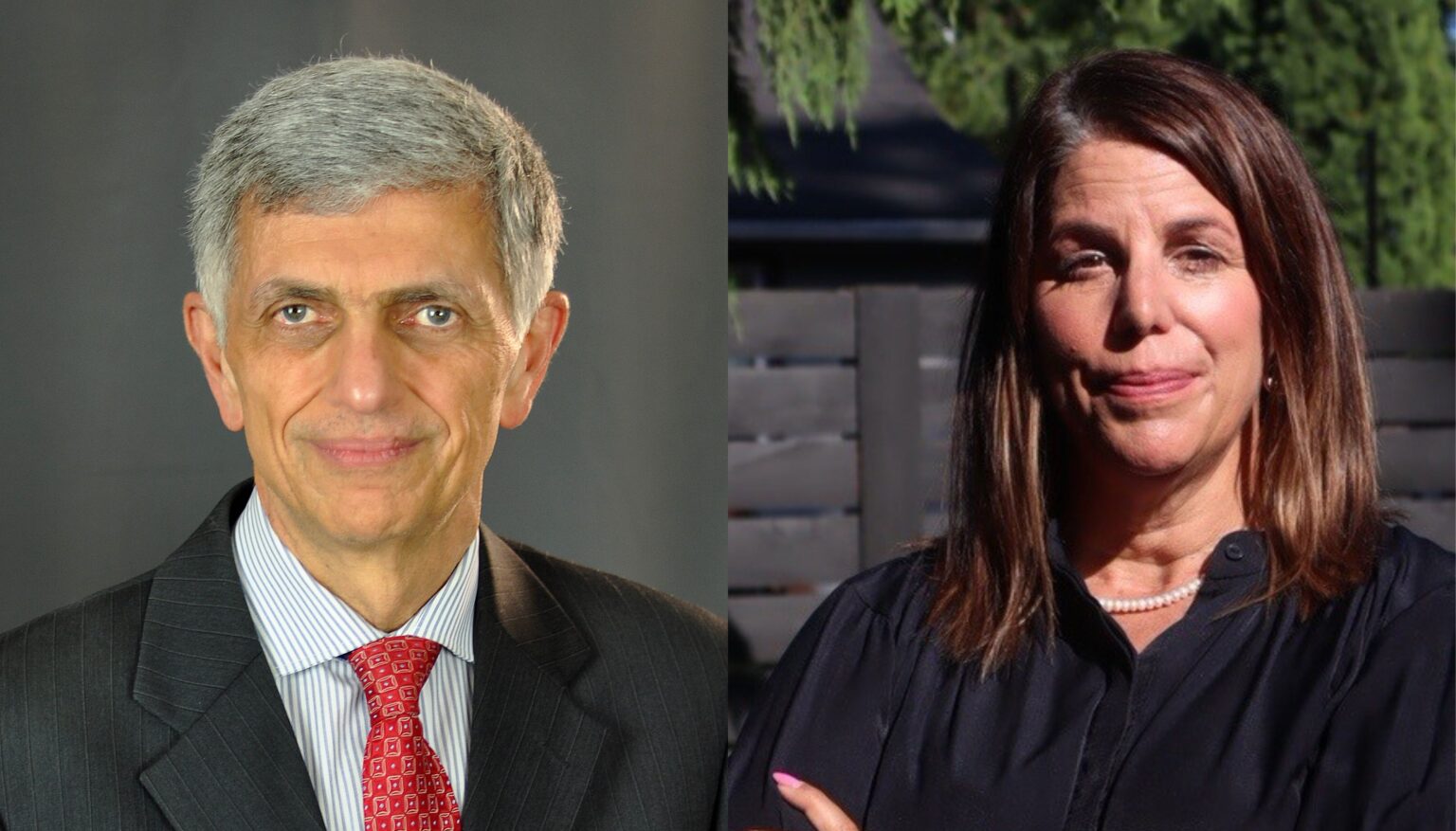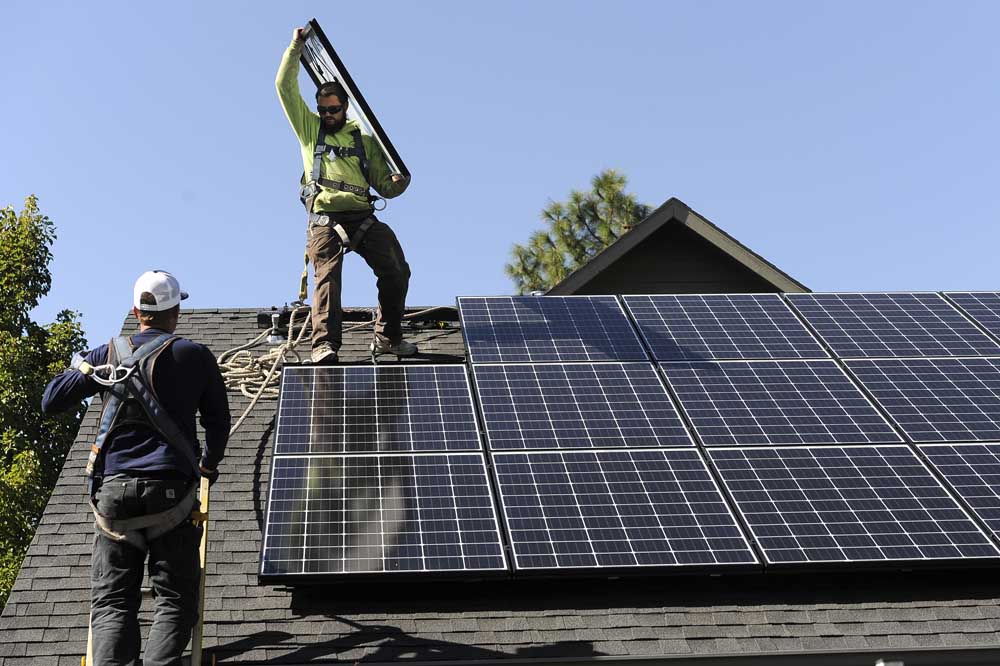Environmentalists argue PacifiCorp’s wildfire liability burden is fueled by coal-protecting bills
Published 7:35 am Monday, May 12, 2025

- Coal is stored outside the Hunter coal-fired power plant, operated by PacifiCorp, in Emery County on Wednesday, July 31, 2024. (Photo by Spenser Heaps for Utah News Dispatch)
When Berkshire Hathaway bought PacifiCorp — Rocky Mountain Power’s parent company — in 2005, stakeholders didn’t consider the losses future devastating wildfires in the West would bring.
It was a mistake to keep PacifiCorp’s structure and not carve it up into the states that comprise the utility, Warren Buffett, CEO and chair of the conglomerate, said during an annual stakeholder meeting last weekend in Omaha.
“There are some problems that can’t be solved, and we shouldn’t be in the business of taking your money, investor money, and tackling things that we don’t know the solution for,” Buffett said, explaining that these risks are often political decisions, since they deal with states or the federal government. “And if you’re in something where you’re going to lose, the big thing to do is quit,” he added.
Trending
It’s important that the country has a smart energy policy, Buffett said. During historical emergency times, like World War II, there was collaboration between the private and public sector. How does that work in today’s democracy? He’s uncertain.
A group of Utahns, joined by environmental activists from other Western states, attended the meeting to try to speak with stakeholders about the effects of burning fossil fuels — including the proliferation of wildfires. They watched as Buffett’s comments unfolded, just days after Utah’s Public Service Commission rejected an 18% residential rate increase proposed by Rocky Mountain Power attributed to rising prices of fuel and wildfire liability.
“All of these costs are driven by Rocky Mountain Power’s reliance on fossil fuels, which is a majority of its energy mix in Utah,” the Sierra Club wrote in a release, arguing that coal reliance may have been empowered by SB224, which passed the Utah Legislature in 2024 establishing a $1 billion fund to allow the state to self-insure in case of fire events caused by electrical corporations.
Meanwhile, Rocky Mountain Power has also indefinitely extended the life of its coal-powered plants in its long-term resource planning.
One of the Utahns attending the meeting was Luis Miranda, senior organizer with Sierra Club’s Beyond Coal campaign, who said the organized opposition had a tough goal during the meeting — to ask stakeholders “to remove climate risk from their portfolio by decarbonizing their grid.”
“Using the opportunity afforded by clean energy, that should resolve a lot of the problems being caused by climate change, which they feel is an unchangeable issue,” he said.
Trending
Greg Abel, chair of Berkshire Hathaway Energy and named successor of Buffett, however, defended the use of fossil fuels during the meeting, arguing that the company has to follow state policies.
While people would like to see coal plants retired, the reality is that the company still needs them to keep the system stable and rates low, Abel said.
Wildfires are intensifying and, with them, the insurance risks the company is absorbing. Abel said that the company has learned from its mistakes and it is switching priorities to protect its assets, like de-energizing when a fire is approaching its equipment — which means the lights may not be kept on during these emergencies anymore.
One thing is certain, Abel said: “We can’t just become the insurer of last resort, and that we’re going to cover any costs and all costs, irrespective of what occurred. And that’s a little bit of the situation we’re in right now.”
This isn’t the first time Berkshire Hathaway leaders have questioned the place of private enterprises in public utilities. Buffett has notably suggested he would be interested in selling the utility, saying “we’re not going to throw good money after bad,” when speaking on the conglomerate’s demand for protections against liability from the government.
Now, after a lawsuit over the massive 2020 Oregon wildfires, the company is now asking every legislature where it operates to get a clear definition of its liability. A jury found PacifiCorp was guilty of “gross negligence” that year. Despite warning from state fire officials, the company failed to cut power to customers during a windstorm, which sparked multiple blazes across the state.
An example, cited by Abel in the past, is Utah’s SB224, which also limits the amount of money a person physically injured by a wildfire can sue for to $450,000, and $100,000 for those who aren’t physically injured.
For Miranda, from the Sierra Club, listening to the meeting left him worried about what could happen for his utility bills as a Rocky Mountain Power customer. Also what could the lasting burning of coal may mean for his community’s public health?
“I have to live with those consequences. These folks do not care about our experience, about how much we are paying and about how we’re living with the consequences of burning unaffordable, dirty coal,” Miranda said. “Is this really the company and the incentive structure in which we are going to put our trust on?”





